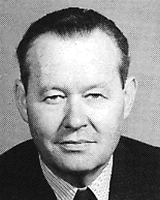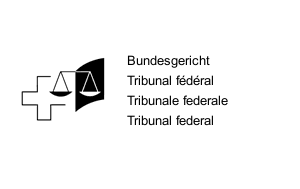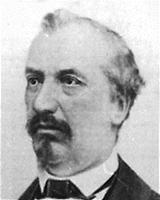
The Politics of Pakistan takes place within the framework established by the constitution. The country is a federal parliamentary republic in which provincial governments enjoy a high degree of autonomy and residuary powers. Executive power is vested with the national cabinet which is headed by Prime Minister of Pakistan, who works with the bicameral parliament and the judiciary. Stipulations set by the constitution provide a delicate check and balance of sharing powers between executive, legislative, and judicial branches of the government.

The government of Switzerland is a federal state with direct democracy.

Hans Schaffner was a Swiss politician and member of the Swiss Federal Council (1961–1970).

Paul Cérésole was a Swiss politician, judge of the Supreme Court (1867–1870) and member of the Swiss Federal Council (1870–1875).

The president of Pakistan is the head of state of the Islamic Republic of Pakistan. The president is the nominal head of the executive and the supreme commander of the Pakistan Armed Forces. The presidency is a ceremonial position in Pakistan. The president is bound to act on advice of the prime minister and cabinet. Asif Ali Zardari is the current president since 10 March 2024.
The government of Czechoslovakia under Marxism–Leninism was in theory a dictatorship of the proletariat. In practice, it was a one-party dictatorship run by the Communist Party of Czechoslovakia, the KSC.

The Federal Supreme Court of Switzerland is the supreme court of the Swiss Confederation and the head of the Swiss judiciary.

The Federal Assembly is the federal bicameral parliament of Switzerland. It comprises the 200-seat National Council and the 46-seat Council of States. It meets in Bern in the Federal Palace.
The Supreme Administrative Court of the Republic of Poland is the court of last resort in administrative cases e.g. those betweens private citizens and administrative bodies. This court deals with appeals from lower administrative courts called Voivodeship Administrative Courts.

The judicial system of Turkey is defined by Articles 138 to 160 of the Constitution of Turkey.

Corina Casanova is a Swiss politician who was the Federal Chancellor of Switzerland between 2008 and 2015.

The Constitutional Court of Korea is one of the highest courts—along with the Supreme Court—in South Korea's judiciary that exercises constitutional review, seated in Jongno, Seoul. The South Korean Constitution vests judicial power in courts composed of judges, which establishes the ordinary-court system, but also separates an independent constitutional court and grants it exclusive jurisdiction over matters of constitutionality. Specifically, Chapter VI Article 111(1) of the South Korean Constitution specifies the following cases to be exclusively reviewed by the Constitutional Court:
- The constitutionality of a law upon the request of the courts;
- Impeachment;
- Dissolution of a political party;
- Competence disputes between State agencies, between State agencies and local governments, and between local governments; and
- Constitutional complaints as prescribed by [the Constitutional Court] Act.
The following is the order of precedence for Australia:
- The King of Australia: His Majesty King Charles III
- The Governor-General of Australia: Her Excellency the Hon Sam Mostyn AC
- The Governor of the State when within their own State.
- The Governors of the other States in order of appointment:
- Governor of New South Wales: Margaret Beazley
- Governor of Tasmania: Barbara Baker
- Governor of South Australia: Frances Adamson
- Governor of Queensland: Jeannette Young
- Governor of Western Australia: Chris Dawson
- Governor of Victoria: Margaret Gardner
- When within the Northern Territory, the Administrator of the Northern Territory: Hugh Heggie
- The Prime Minister: Anthony Albanese
- When within their own State or Territory, the Premier of the State or the Chief Minister of the Territory
- The President of the Senate and the Speaker of the House of Representatives in order of election :
- President of the Senate Senator: Sue Lines
- Speaker of the House of Representatives: Milton Dick
- The Chief Justice of Australia: Stephen Gageler
- Senior diplomatic posts:
- Ambassadors and High Commissioners in order of date of presentation of the Letters of Credence or Commission
- Chargés d'affaires en pied or en titre in order of date of presentation of the Letters of Credence or Commission
- Chargés d'affaires ad interim and Acting High Commissioners in order of date of assumption of duties
- Members of the Federal Executive Council under summons :
- Ministry List
- The Administrator of the Northern Territory: Hugh Heggie
- The Leader of the Opposition: Peter Dutton
- Former holders of high offices:
- Former Governors-General in order of leaving office:
- William Deane (1996–2001)
- Peter Hollingworth (2001–2003)
- Quentin Bryce (2008–2014)
- Peter Cosgrove (2014–2019)
- David Hurley (2019-2024)
- Former Prime Ministers in order of leaving office:
- Paul Keating (1991–1996)
- John Howard (1996–2007)
- Kevin Rudd
- Julia Gillard (2010–2013)
- Tony Abbott (2013–2015)
- Malcolm Turnbull (2015–2018)
- Scott Morrison (2018–2022)
- Former Chief Justices in order of leaving office:
- Anthony Mason (1987–1995)
- Murray Gleeson (1998–2008)
- Robert French (2008–2017)
- Susan Kiefel (2017–2023)
- Premiers of states in order of state populations, then Chief Ministers of the territories in order of territory populations:
- Premier of New South Wales: Chris Minns
- Premier of Victoria: Jacinta Allan
- Premier of Queensland: Annastacia Palaszczuk
- Premier of Western Australia: Roger Cook
- Premier of South Australia: Peter Malinauskas
- Premier of Tasmania: Jeremy Rockliff
- Chief Minister of the Australian Capital Territory: Andrew Barr
- Chief Minister of the Northern Territory: Natasha Fyles
- The Lord Mayor when within their jurisdiction
- Justices of the High Court in order of appointment:
- Michelle Gordon AC
- James Edelman
- Simon Steward
- Jacqueline Sarah Gleeson
- Jayne Jagot
- Robert Beech-Jones
- Senior judges:
- Chief Justice of the Federal Court of Australia: Debra Mortimer
- Chief Justice of the Federal Circuit Court of Australia : Will Alstergren
- Chief Judge of the Federal Circuit and Family Court of Australia : Jointly held with the above by Will Alstergren
- The Chief Justice of the Supreme Court of the (Australian) jurisdiction
- The other Chief Justices of the Supreme Courts of the States and Territories in order of appointment :
- Chief Justice of the Supreme Court of South Australia: The Hon Chris Kourakis SC
- Chief Justice of the Supreme Court of Tasmania: The Hon Alan Blow AO
- Chief Justice of the Supreme Court of the Northern Territory: Michael Grant
- Chief Justice of the Supreme Court of Victoria: Anne Ferguson
- Chief Justice of the Supreme Court of Western Australia: Peter Quinlan SC
- Chief Justice of the Supreme Court of New South Wales: The Hon Andrew Bell SC
- Chief Justice of the Supreme Court of the Australian Capital Territory: Lucy McCallum
- Chief Justice of the Supreme Court of Queensland: The Hon Helen Bowskill KC
- Australian members of the Privy Council of the United Kingdom in order of appointment:
- The Rt Hon Ian Sinclair AC
- The Rt Hon Sir William Heseltine
- The Chief of the Defence Force
- Chief Judges of State and Territory Courts in order of their appointment to any of their respective jurisdictions' courts
- Members of Parliament
- Presidents of Federal Tribunals:
- The President of the Fair Work Commission: The Hon Justice Adam Hatcher SC
- The President of the Administrative Appeals Tribunal: The Hon Justice Emilios Kyrou AO
- Other Judges of Federal, State and Territory Courts in order of their appointment to any of their respective jurisdictions' courts
- Lord Mayors of capital cities in order of city populations:
- Lord Mayor of Sydney: The Rt Hon the Lord Mayor of Sydney, Councillor Clover Moore AO
- Lord Mayor of Melbourne: The Rt Hon the Lord Mayor of Melbourne, Councillor Sally Capp AO
- Lord Mayor of Brisbane: The Rt Hon the Lord Mayor of Brisbane, Councillor Adrian Schrinner
- Lord Mayor of Perth: The Rt Hon the Lord Mayor of Perth, Mr Basil Zempilas
- Lord Mayor of Adelaide: The Rt Hon the Lord Mayor of Adelaide, Dr Jane Lomax-Smith AM
- Lord Mayor of Hobart: The Rt Hon the Lord Mayor of Hobart, Councillor Anna Reynolds
- Lord Mayor of Darwin: The Rt Worshipful the Lord Mayor of Darwin, the Hon Kon Vatskalis
- Heads of religious communities according to the date of assuming office in Australia
- The Presiding Officer(s) of the State Legislature when in their own jurisdiction.
- Presiding officers of the other State Legislatures in order of appointment, then Presiding Officer of Territory Legislatures in order of appointment:
- Speaker of the Victorian Legislative Assembly: Colin Brooks
- Speaker of the Legislative Assembly of Queensland: Curtis Pitt
- President of the Victorian Legislative Council: Nazih Elasmar
- Speaker of the New South Wales Legislative Assembly: Jonathan O'Dea
- President of the Tasmanian Legislative Council: Craig Farrell
- President of the South Australian Legislative Council: John Dawkins)
- Speaker of the Western Australian Legislative Assembly: Michelle Roberts)
- President of the New South Wales Legislative Council: Matthew Mason-Cox
- President of the Western Australian Legislative Council: Alanna Clohesy
- Speaker of the Tasmanian House of Assembly: Mark Shelton
- Speaker of the South Australian House of Assembly: Dan Cregan
- Speaker of the Australian Capital Territory Legislative Assembly: Joy Burch
- Speaker of the Northern Territory Legislative Assembly: Ngaree Ah Kit
- The members of the particular State Executive Council under summons, then the Members of the other State Executive Councils in order of state populations, and then the Ministers of the Australian Capital Territory and then Members of the Northern Territory Executive Council:
- Executive Council of New South Wales
- Executive Council of Victoria
- Executive Council of Queensland
- Executive Council of Western Australia
- Executive Council of South Australia
- Executive Council of Tasmania
- Ministers of the Australian Capital Territory
- Executive Council of the Northern Territory
- The Leader of the Opposition of the particular State, and then Leaders of the Opposition of State Legislatures in order of state populations, then Leaders of the Opposition in Territory Legislatures in order of territory populations:
- Leader of the Opposition of New South Wales: Mark Speakman
- Leader of the Opposition of Victoria: John Pesutto
- Leader of the Opposition of Queensland: David Crisafulli
- Leader of the Opposition of Western Australia: Shane Love
- Leader of the Opposition of South Australia: Peter Malinauskas
- Leader of the Opposition of Tasmania: Rebecca White
- Leader of the Opposition of the Australian Capital Territory: Elizabeth Lee
- Leader of the Opposition of the Northern Territory: Lia Finocchiaro
- Members of the Federal Executive Council not under summons
- Members of the particular State or Territory legislature, and then Members of State and Territory Legislatures in order of population:
- New South Wales Legislative Assembly and Legislative Council
- Victorian Legislative Assembly and Legislative Council
- Queensland Legislative Assembly
- Western Australian Legislative Assembly and Legislative Council
- South Australian House of Assembly and Legislative Council
- Tasmanian House of Assembly and Legislative Council
- Australian Capital Territory Legislative Assembly
- Northern Territory Legislative Assembly
- The Secretaries of Departments of the Australian Public Service and their peers and the Chiefs of the Air Force, Army, and Navy in order of first appointment to this group:
- Chief of Air Force: Air Marshal Robert Chipman
- Chief of Army: Lieutenant General Simon Stuart
- Chief of Navy: Vice Admiral Mark Hammond
- Consuls-General, Consuls and Vice-Consuls according to the date on which recognition was granted
- Recipients of Decorations or Honours from the Sovereign, specifically Decorations or Honours which are at or above the Knight Bachelor or above, and precedence being established according to the Australian honours order of wearing, and, where two people hold the same decoration or honour, according to the date on which the award was announced
- Citizens of the Commonwealth of Australia

In most legal jurisdictions, a supreme court, also known as a court of last resort, apex court, and highcourt of appeal, and court of final appeal, is the highest court within the hierarchy of courts. Broadly speaking, the decisions of a supreme court are binding on all other courts in a nation and are not subject to further review by any other court. Supreme courts typically function primarily as appellate courts, hearing appeals from decisions of lower trial courts, or from intermediate-level appellate courts. A supreme court can also, in certain circumstances, act as a court of original jurisdiction.

The Supreme Court of the Russian Federation is a court within the judiciary of Russia and the court of last resort in Russian administrative law, civil law and criminal law cases. It also supervises the work of lower courts. Its predecessor is the Supreme Court of the Soviet Union.

The Federal Administrative Court of Switzerland is a Swiss federal court. It is the judicial authority to which decisions of the federal authorities of Switzerland can be appealed. The decisions of the Federal Administrative Court can generally be appealed, in turn, to the Federal Supreme Court of Switzerland.
The Federal Insurance Court of Switzerland was an independent division of the Swiss Federal Supreme Court based in Lucerne. Responsible for judicial review of administrative decisions related to social security, it was composed of eleven full-time and eleven part-time judges.

The Judiciary of Brazil is the group of public entities designated by the Brazilian constitution to carry out the country's judicial functions.
The Honourable or The Honorable is an honorific style that is used as a prefix before the names or titles of certain people, usually with official governmental or diplomatic positions.

Yves Rüedi is a Judge of the Federal Supreme Court of Switzerland.
This page is based on this
Wikipedia article Text is available under the
CC BY-SA 4.0 license; additional terms may apply.
Images, videos and audio are available under their respective licenses.

















